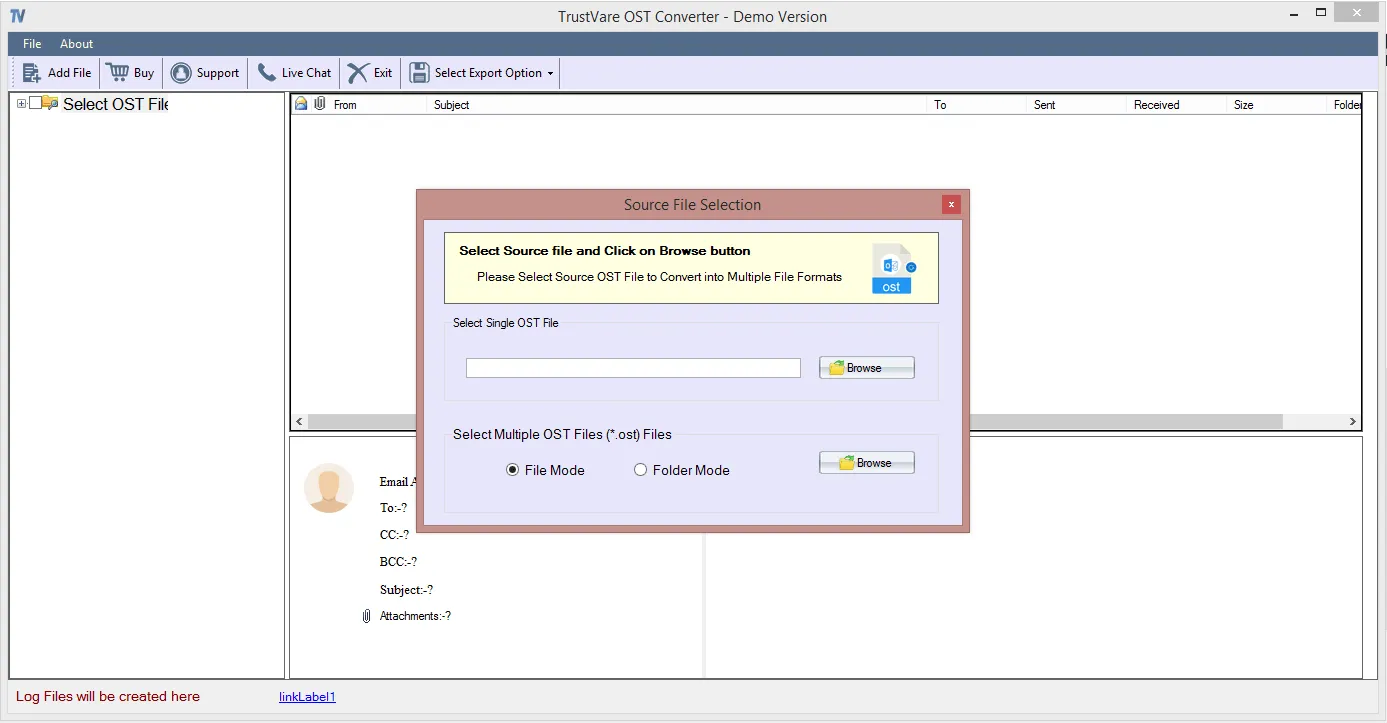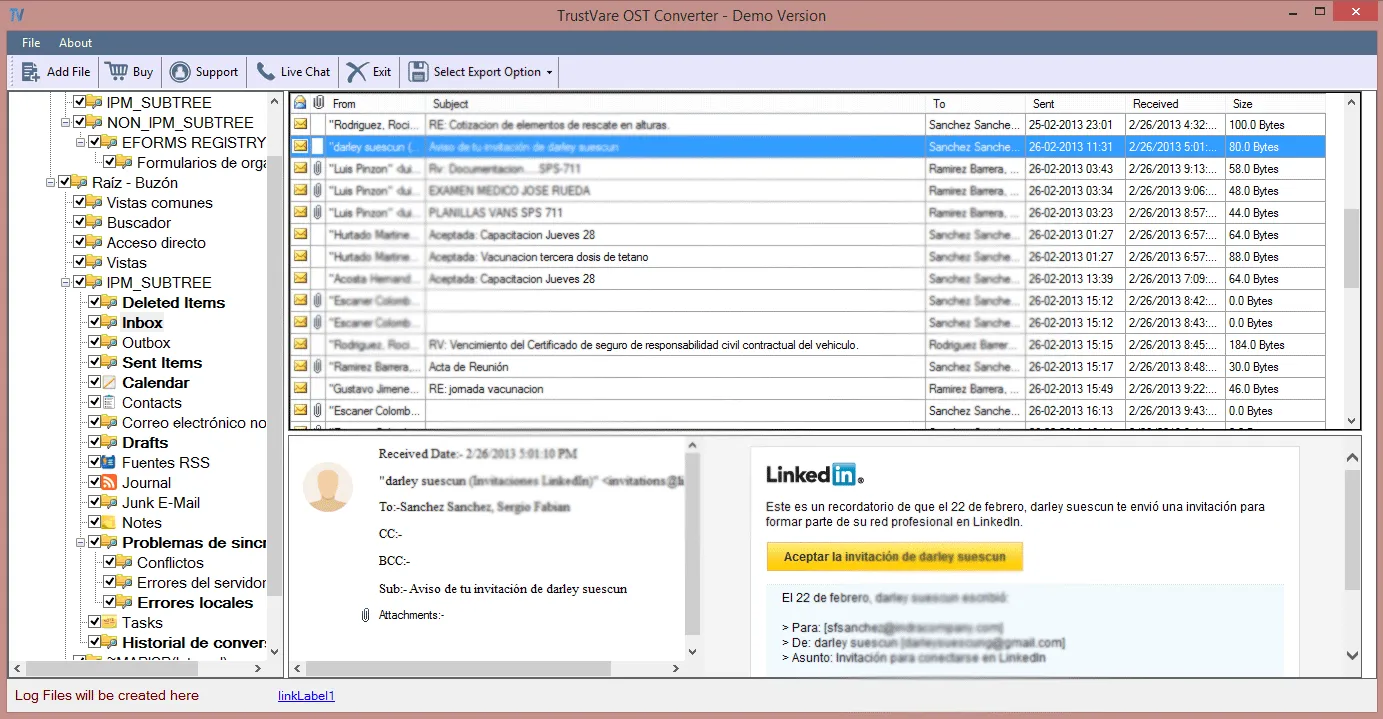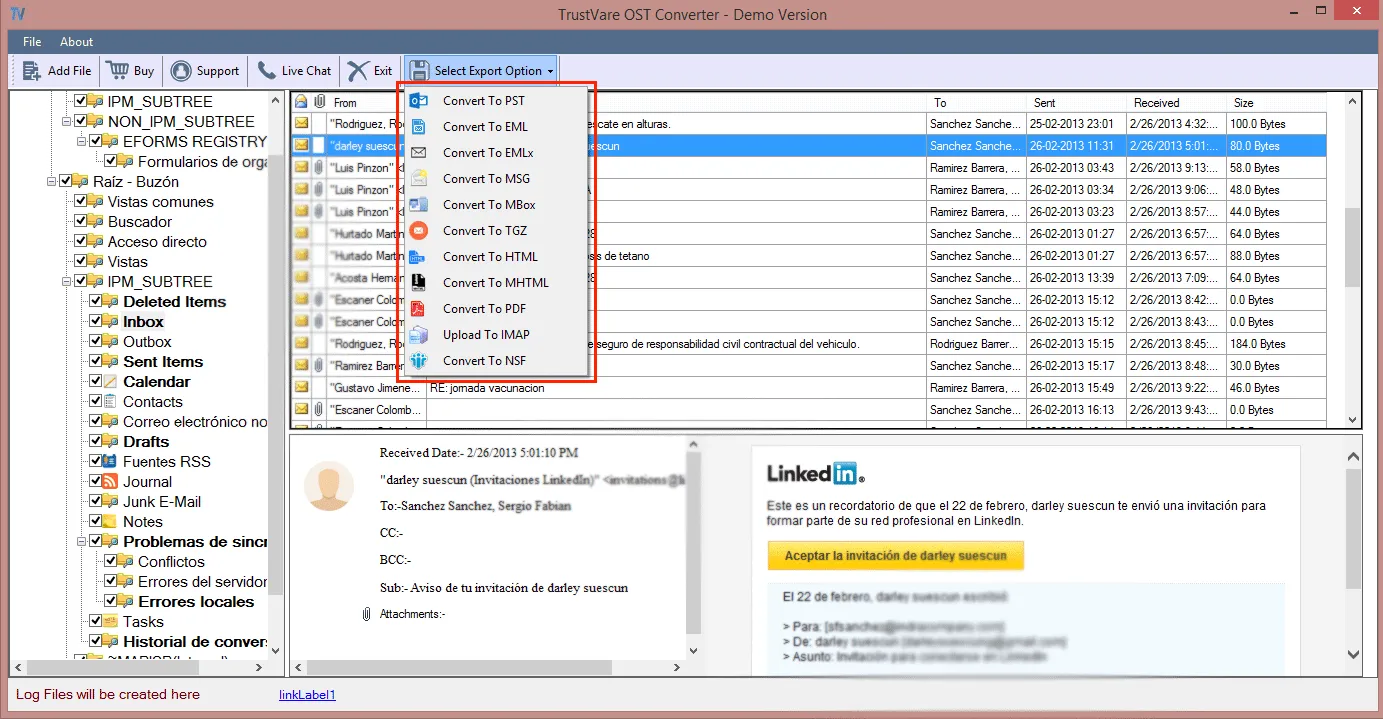Instant Solution to Retrieve OST Database in Microsoft Outlook

technology

8 months ago
Users of an Offline Storage Table or Outlook OST file are growing more conscious of its almost identical resemblance to PST files carrying MS Exchange mailbox data. It is also rather popular. The OST file maintains the Exchange data offline on the local PC. This allows the user to keep working even if the Exchange Server is not easily available without any trouble. Any modifications done to the OST file are synchronized with the Exchange Server upon connection establishment once more.
But occasionally OST files get corrupted or inaccessible, which seriously compromises Microsoft Outlook's regular operation. Now, the only way a user might try to fix this is to translate OST Database in Microsoft Outlook. Sometimes, however, a user does not have MS Outlook installed on the workstation to manually convert OST to Outlook PST files. Thus, taking all such possibilities into account, we have presented an innovative method to turn OST into PST without Outlook.
Why is it Required to Transfer an Offline OST to PST Format?
It would be advisable to first know the exact cause behind OST to PST conversion before straight going to a solution to export OST into Outlook format. One of the main causes is scanost.exe's inability to fix the defective OST. Apart from this, the Outlook OST Database in Microsoft Outlook PST transfer is driven by numerous other factors covered below:
MAPI Links
Usually, the offline OST files are connected to a single MAPI profile. This is the reason it is simple to access OST files on the local machine when cache mode is turned on to configure an Exchange account. It will not be feasible, nevertheless, if a user wishes to view OST file contents on another system. A user must export offline OST to Outlook PST format and then, use Microsoft Outlook to readily open it on the system.
Limit of OST File Size
If a user is using OST files from many years past, they must have gotten really big. Moreover, OST files are not suited so well that they can handle a huge amount of data. This explains why corruption is more likely in this regard. Therefore, it becomes imperative to routinely archive outdated OST data in PST format and maintain it safe from all kinds of corruption problems.
Orphan OST File
Should a Microsoft Exchange Server account be removed, become unreachable, or show any technical problems, the related OST file will become orphan. Moreover, the display begins if a user tries to access the orphan OST file. Converting OST files to Outlook PST format and accessing the data of an orphan OST file in any Outlook profile is the only solution a user might try.
Best Guide for Converting OST Database in Microsoft Outlook
One can try several manual techniques to export Outlook to PST format. Nevertheless, there are certain restrictions a user could run across by applying manual techniques. To OST data to PST, for instance, MS Outlook software is required. It is not a perfect fix as, should the manual approach be improperly executed, some data loss could result. Therefore, one can use the smart method to convert OST without Outlook, i.e., TrustVare OST to PST Converter tool, so avoiding all such restrictions.
Among users, this is among the most often used tools to convert Outlook OST files to Outlook form. It exports every data item kept in an OST file into PST format. Moreover, there is no additional installation needed to carry out the migration successfully. This utility allows a user of any version of Microsoft Windows to access 2 GB files without any restrictions. The following describes some more main advantages of the program:
- Able to restore erased data from an Offline OST file
- Keeps a folder organization long after the migration procedure.
- Date-based filter for exporting particular date ranges' selected data
- No 2 GB file size limitations: Export any scale offline OST in PST format.
- Maintaining OST file data's meta characteristics all through the conversion
- Supports Microsoft Outlook 2021, 2016, 2016/2013, and all versions below.
A Few Steps to Migrate OST Database into Outlook PST files:
- Install the TrustVare OST to PST converter program on your computer.
- Select the OST files, then choose the browser option.

- Examine the OST files before the transfer process.
- Choose the location path, then hit the browse option.

- Finally, to finish the conversion, click the convert button.

Let's Review.
If Outlook is not exported to a PST file, the small problem in the offline OST file cannot be totally fixed and would cease the general working of Outlook. Besides, occasionally people have OST files but not Outlook. Thus, in this post, we have covered a method to translate OST into PST without Outlook. A user can apply this assured fix without any effort and data loss is not involved. Moreover, Offline OST Database in Microsoft Outlook Conversion can be done effectively without Microsoft Outlook installation.
